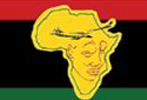The coronavirus COVID-19, just like Ebola, reminds us what happens when crisis ignite deep-rooted stereotypes. Yet viruses, or any disease for that matter, do not see color. Nor do they recognize states borders and ethnic enclaves.

When the highly infectious and deadly Ebola hit a handful of West African countries in 2014, news of how the whole African continent was battling the disease spread quickly. Ebola would claim more than 11,000 lives in Sierra Leone, Guinea, and Liberia and the cost, in economic terms, of the outbreak in those countries alone was more than $1.6 billion in losses. But the outbreak, aided by preexisting prejudices and deeply rooted stereotypes, would have incalculable impacts on the continent, its people, and far beyond. During the devastating Ebola crisis, to be “African” was to be a primary suspect, amplifying the never-ending stigmatization, discrimination, and blatant racism against Africa and its people.
What is going on today with regard to China is, therefore, a familiar story. The coronavirus COVID-19 is galvanizing prejudices against the Asian country and its people—resurrecting archaic stereotypes while making light of a deadly outbreak. But, there is a significant difference between these two cases. Ebola was seen as signifying Africa’s inherent helplessness, while COVID-19 combines preexisting biases with the fear of a rising China.
The US’s reaction, indeed overreaction, to the outbreak is a case in point. It illustrates the prevalent fear of a rising China that is believed to have a secret agenda to take over the world. “Xenophobia, ideology and the Western fear for China’s rise are the triple burdens that hinder the fight against the 2019 coronavirus,” David Monyae of Africa-China Studies at the University of Johannesburg concluded in a recent opinion piece on a South African news site. Indeed, a recent article, “Welcome to the Belt and Road Pandemic,” published by Foreign Policy, reinforces this argument. According to the piece, “By making the Belt and Road Initiative endeavor—a multi-trillion dollar program to expand Chinese trade and infrastructure around the world—the epicenter of his foreign and economic policy, Xi has made it possible for a local disease to become a global menace … [if only] China is now impossible to quarantine.”
Such views can only help intensify the mass hysteria and anti-Chinese sentiment that has accompanied the spread of the virus. And clearly, beyond geopolitics, racism, whether acknowledged or not, is also at play. Little wonder that the World Health Organization (WHO) had to warned against “trolls and conspiracy theories” surrounding the viral outbreak. That didn’t stop US cruise ship company Royal Caribbean from declaring that would-be passengers and crew with Chinese passports would be banned from all of its cruise ships, irrespective of their travel history, regardless of when they were last in China. The message here is clear: to be a holder of a Chinese passport is to be inherently a carrier of the virus. That is the definition of racism.
According to the WHO it is “very important that we provide a … name so no location was associated with the name … to ensure that there was no stigma associated with this virus.” Yet, in reporting on the outbreak, many media outlets with global outreach have deliberately chosen to use “China virus” or “Wuhan virus” in their stories. As Kevin Rudd, the former Australian prime minister observes, “These are ugly times and the racism implicit (and sometimes explicit) in many responses to Chinese people around the world makes me question just how far we have really come as a human family.”
Just like during the Ebola outbreak, these stereotyping and prejudicing will continue unabated, unfortunately. But one thing is beyond doubt: viruses or, for that matter, any kind of disease, do not see color. They do not recognize the oft-celebrated borders of nation-states or ethnic enclaves. The best way, indeed, the only way to effectively defeat them is by working together, collaboratively.

